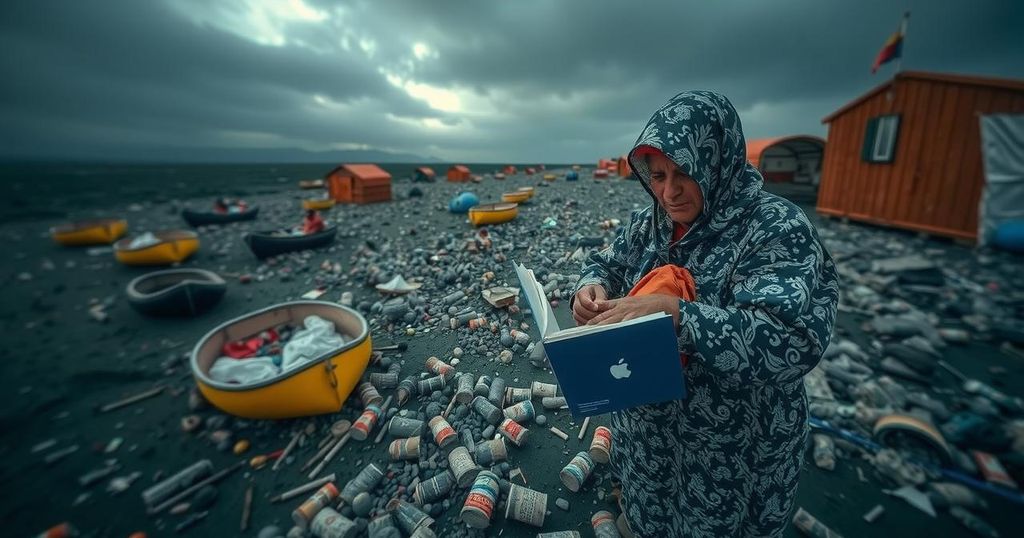Climate Change Drives Record Displacement, Intensifying Refugee Crises
The UN stresses that climate change intensifies global displacement, aggravating already dire conditions for refugees. With extreme weather impacting regions in turmoil, there is a pressing need for increased global investment in climate resilience. Displaced populations, primarily in fragile states, face escalating challenges, underscoring the urgency for climate adaptation funding to prevent further crises.
The United Nations has recently highlighted the exacerbation of global displacement due to climate change, noting that soaring temperatures and extreme weather exacerbate already perilous situations for vulnerable populations. As international climate discussions take place in Baku, the UN refugee agency (UNHCR) has detailed how climate-induced emergencies, coupled with conflict in regions such as Sudan and Myanmar, escalate the suffering of displaced individuals. Essentially, over 75% of those forced to flee reside in nations highly susceptible to climate hazards, underscoring the urgent need for substantial investments aimed at mitigating these risks and supporting affected communities.
The current global climate crisis is increasingly tied to the record numbers of individuals being displaced due to conflicts, environmental disasters, and a lack of necessary infrastructure in refugee-hosting countries. The UNHCR has indicated that the number of people permanently displaced by conflict has doubled in the last decade, while recent data shows that weather-related disasters alone have resulted in approximately 220 million individuals being displaced within their countries over the past ten years.
The worsening climate crisis is dramatically increasing the number of displaced individuals worldwide, resulting in increasingly dire circumstances for those affected. The UNHCR emphasizes the necessity for more international funding and climate resilience investment, particularly in fragile states. Inaction in addressing these issues will inevitably lead to further displacement, as conditions for vulnerable populations continue to deteriorate.
Original Source: www.latintimes.com




Post Comment